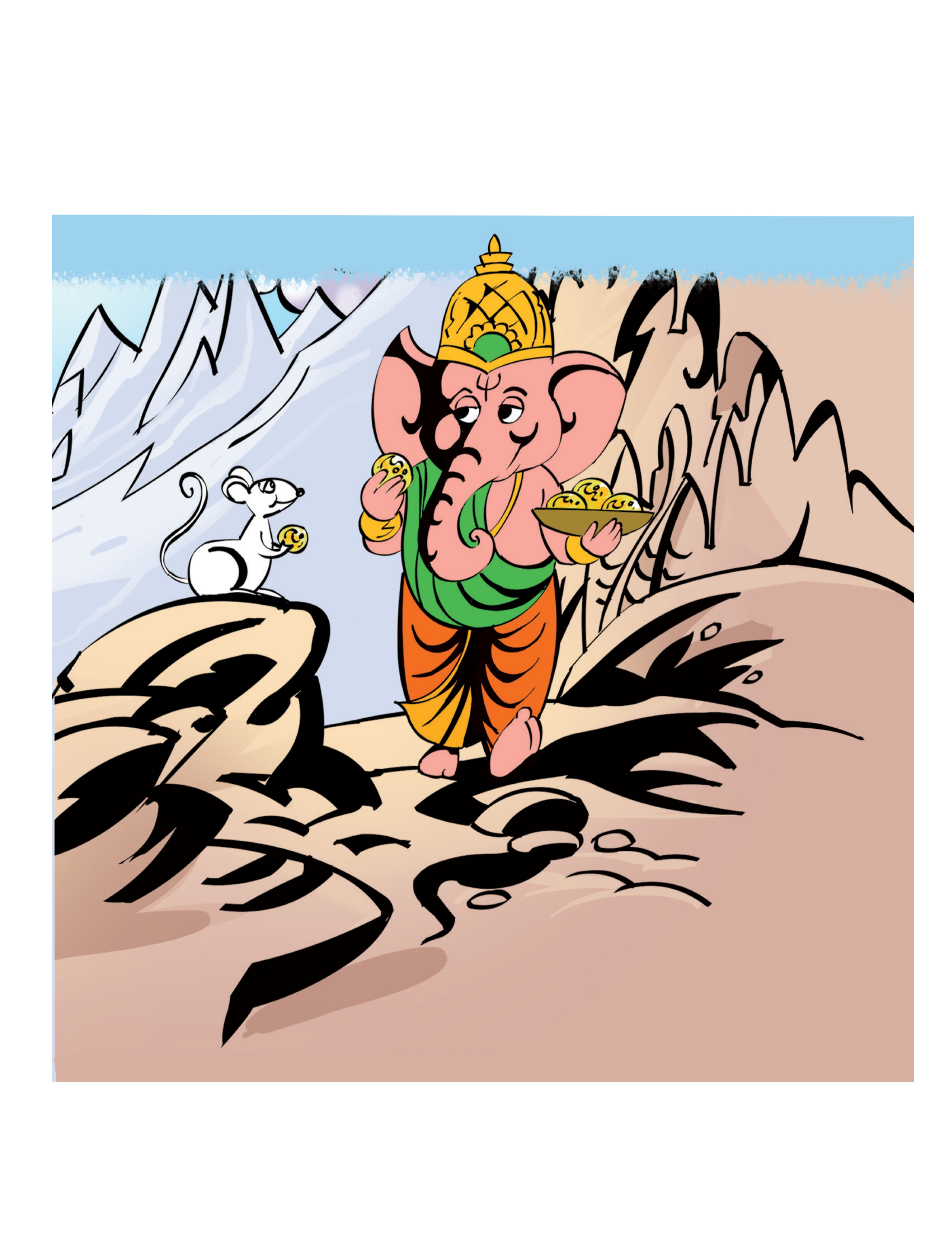Both Parvati and Lord Shiva doted on their first child, Lord Ganesha. The story of how Ganesha won their hearts and the golden fruit by circumventing them both as the centre of his world is one of the most well-known stories of them. Lord Ganesha’s honesty and sincerity along with his calm intelligence and wisdom is what makes him the beloved deity we all pray to before embarking on a new journey or adventure.
When Lord Shiva gave Ganesha his elephant head, he also made him the chief of all his Ganas (hence his name “Ganesh” or “Ganapati”), Parvati wanted Shiva to ensure that Ganesha became irreplaceable in the world amidst all the devas. That was when Shiva announced that those looking to start something new must always worship Ganesha first to achieve success. This granted Lord Ganesha a status no other god could claim. So absolute was Lord Ganesha’s position amidst the other deities that even Lord Shiva had to go by his own rule.

Another short grandmother’s tale goes that Lord Shiva was called on to face an asura who was wreaking havoc and terrorising the other devas. With no other god powerful enough to defeat the demon, it was down to Shiva to act. Assembling his army of Ganas, Lord Shiva set off to battle, forgetting all about the rule he himself had made. In his hurry to go fight, Lord Shiva forgot to invoke the blessings of his own son, Ganesha.
Lord Ganesha is most appreciative of his devotees’ humility when they seek his blessings. Lord Shiva, albeit his status as Mahadev and Lord Ganesha’s father, had to seek his son’s blessings before he set out to battle so he could claim victory.
As Lord Shiva rode to battle, his mount, Nandi, got his hoof stuck in a deep rut along the way. As they stumbled to a stop, Lord Shiva wondered at this obstacle on his way. As the deva who had made the rule himself, he instantly realised that he had forgotten something crucial – seeking his son’s blessings. At once, Shiva arranged for and conducted a puja to grace Ganesha and asked for his blessings, after which Nandi was able to pull his hoof free, and Lord Shiva was able to ride to battle and attain victory.

The story, while relatively diminutive, holds huge significance. It shows that even Lord Shiva, as a father and the most supreme being in the universe, had to bow before his son in order to be successful. It reminds us that rules, even when made by oneself, must be followed without exception. And lastly, that humility is never out of place, not even between son and father, and especially not amidst mortals and gods.






